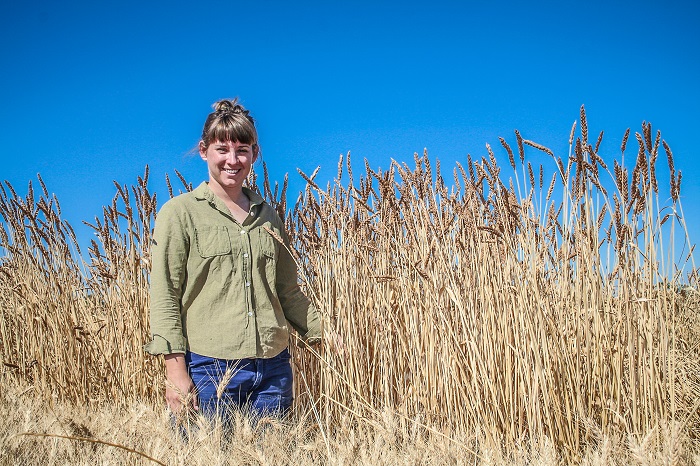PS Seminar Series - PhD Exit Seminar : Stabilising the flowering time of wheat in response to autumn rainfall decline in southern Australia
Speakers
Event series
Content navigation
Description

Abstract - Wheat (Triticum aestivum) production is important to global food security and the livelihoods of those who cultivate it. Increases in water-limited yield potential and farm yield are necessary to keep pace with global demand, and in order for Australian growers to remain competitive in a changing climate and with declining terms of trade. In drought prone environments such as south-eastern Australia, alignment of key development stages such as flowering to the period that is optimal for the local climate is a critical determinant of yield. The optimal flowering period begins when the risk of frost decreases, and ends to avoid increasing temperature, heat and water stress during grain fill. Flowering time is a function of the interaction between the speed of plant development (genetic, G), establishment date (management, M) and prevailing seasonal conditions (environment, E). Autumn rainfall decline, extreme spring weather and increasing farm size challenge traditional G x M combinations which are currently used to achieve the optimal flowering period in south-eastern Australia i.e. predominately fast developing spring wheats sown in late-April to early May. This situation has prompted a re-evaluation of wheat breeding objectives and management options available to wheat producers in south-eastern Australia. The presentation will highlight novel G x M strategies identified through simulation studies and field experiments based in NSW, Victoria, SA and WA, that can lift farm yield and water limited yield potential by stabilising flowering time under emerging climate conditions in Australia.
Biography - Bonnie Flohr is a PhD student who has been based at CSIRO and ANU in Canberra, and is originally from a family farm in the wheat-belt of South Australia. Her research has focussed on optimising the flowering time of wheat under emerging climate conditions in Australia, with a focus on combining novel “fast winter” phenology types with timely sowing to maximize yield. Investigations include field experiments and simulation modelling to develop management strategies to ensure wheat flowers in the optimal periods she has defined. The field research has focussed on determining which genetic x management combinations will maximise yield, and to understand the underlying crop physiology. Prior to her PhD studies, Bonnie has worked on international projects with ACIAR (Australian Centre for International Agriculture Research) in Tibet and the Philippines, in shearing sheds, cattle feedlots and pearl boats.
Location
Eucalyptus Room, Level 2, RN Robertson Building (46), ANU




